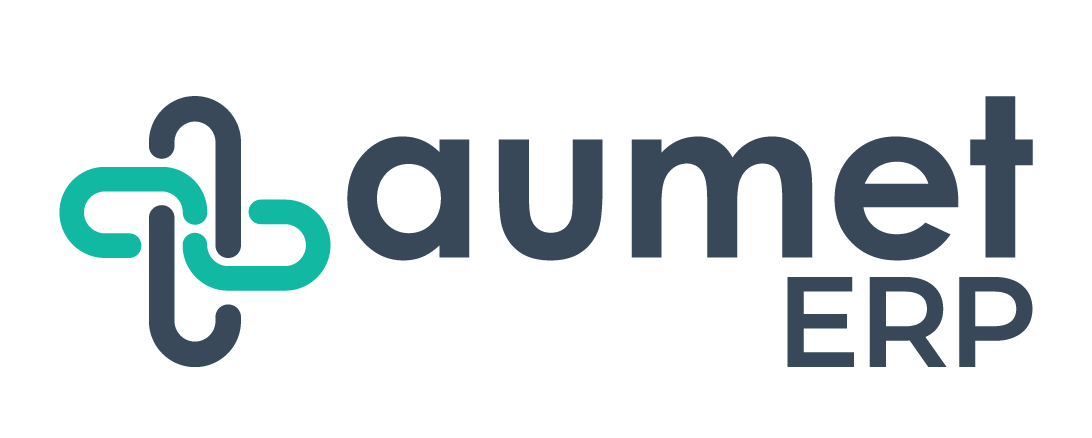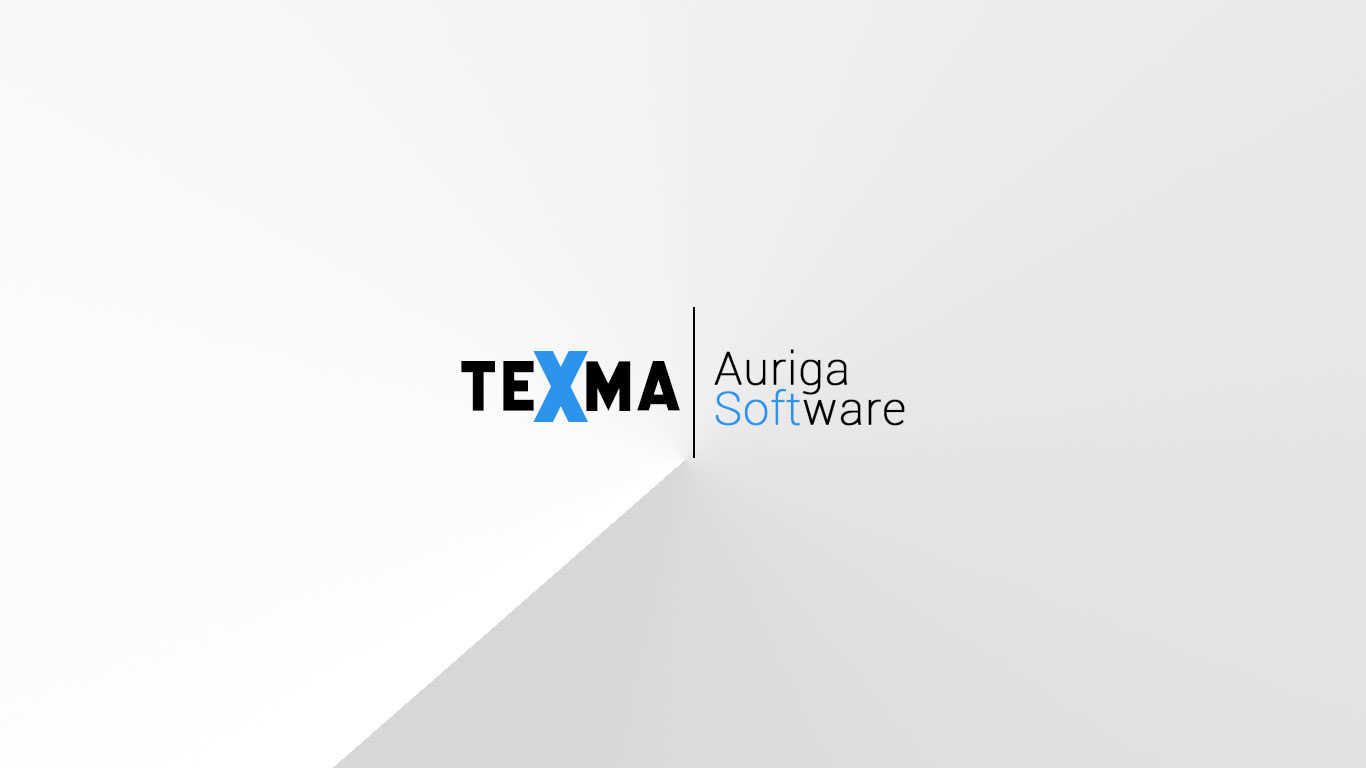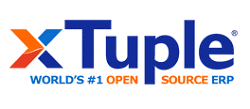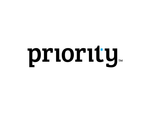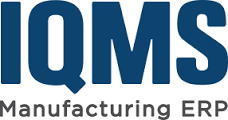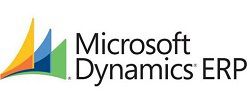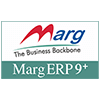Yes, most small business ERP software is designed to be available from a variety of devices and platforms. With the growing usage of mobile devices in day-to-day corporate operations, many ERP providers have created cloud-based solutions that can be accessed via web browsers on a variety of devices, including smartphones and tablets running multiple operating systems. This enables enterprises to run their operations flawlessly regardless of the device or platform they use.
List of 20 Best Small Business ERP Software
Aumet ERP- a leading healthcare solution designed to optimize business operations. With advanced features like inventory management, order processing, and financial management, our platform enhances efficiency and productivity for healthcare organiza...Read More Aumet ERP
CW ERP solution for businesses looking for efficient and cost-effective operations. Our state-of-the-art technology offers a plethora of simplified solutions to cater to all your business requirements. Say goodbye to excessive operational expenses an...Read More CW ERP
TEXMA is a integrated software that revolutionizes your manufacturing processes. Utilizing cutting-edge industry standards, TEXMA automates tasks and ensures consistency, increasing operational efficiency. Ideal for any manufacturing business looking...Read More TEXMA
APT ERP the ERP solution designed to simplify and optimize business operations. Its intuitive interface makes it the ideal choice for manufacturing and production businesses. But thats not all - APT ERP is a system that caters to diverse industries,...Read More APT ERP
Gluon ERP solution for Manufacturers and Traders. Simplify your enterprise operations effortlessly - from managing Accounts & Finance, Sales & Purchase, Production, Inventory to Asset Management, everything can be easily handled from a single platfor...Read More Gluon ERP
FusionFlow ERP - a cloud-based solution built to elevate your business processes. With its robust features, including procurement, inventory, sales, and more, FusionFlow caters to industries across the board. Experience seamless operations and increa...Read More FusionFlow ERP
AICAN Optiwise solution for MSME manufacturers seeking to streamline their end-to-end operations. Our software not only offers budget-friendly prices, but also free customizations tailored specifically for MSME manufacturers. Say goodbye to complex p...Read More AICAN Optiwise
xTuple ERP is a software solution for optimizing your business processes, maximizing productivity, and delivering top-notch customer service. Through the Enterprise package, consolidate all your business data into one seamless system. Efficiently man...Read More xTuple ERP
Priority ERP is a complete business management solution designed to streamline operations and drive efficiency. Our software supports multi-company, multi-site, multi-lingual, and multi-currency organizations, offering a wide range of modules and fun...Read More Priority ERP
VIENNA Advantage Cloud ERP is a and sought-after solution designed for various businesses, industries, and customers around the world. With a proven record of nearly 1000 successful product implementations, it is a top contender in the global ERP and...Read More VIENNA Advantage Cloud ERP
Oracle Netsuite EMEA is a business system that offers a comprehensive suite of solutions to meet all your organizational needs. With a proven track record of over two decades, it has helped numerous businesses thrive and succeed. Its integrated finan...Read More Oracle Netsuite EMEA
MetalZulu is a ERP software specifically designed for metal industries. Experience enhanced efficiency and profitability with its advanced features such as efficient inventory management, streamlined production processes, and excellent customer servi...Read More MetalZulu
Shop Pro - the premier POS and inventory management software for businesses, big or small. Featuring a fully customizable dashboard, user-friendly POS, advanced product management, and multi-language options, this software simplifies your operations...Read More Shop Pro
Joapa Vigil Garment Management software designed to assist you in running your garment business smoothly. With a user-friendly interface and customizable features like product listing, sales and purchase tracking, and a reliable report book, Joapa Vi...Read More Joapa Vigil Garment Management
BRP Datasuite is a ERP solution that streamlines and connects your manufacturing and engineering processes to your desktop. Utilize its remote management feature to access and monitor your factory operations from anywhere. Take advantage of efficient...Read More BRP Datasuite
K3|pebblestone is a fashion solution that seamlessly integrates with Microsoft Dynamics 365 Business Central. Designed for small and medium-sized fashion and apparel businesses, this software offers a user-friendly interface and comprehensive feature...Read More K3pebblestone
Upgrade your packaging processes with IQMS Manufacturing ERP. This comprehensive solution offers advanced features like lot and serial UPC labeling, traceability, and document control. With flexible BOM capabilities for dies and inks, your company ca...Read More IQMS Manufacturing ERP
Microsoft Dynamics 365 Business Central, the premier cloud-based management solution designed specifically for small and medium-sized businesses. With its powerful app, seamlessly integrate all your financial, sales, service, and operations teams. St...Read More Microsoft Dynamics 365 Business Central
eGenius CAAS is a ERP solution designed specifically for educational institutions. With its advanced features and customizable options, our powerful system streamlines all academic and administrative tasks, making campus operations seamless and hassl...Read More eGenius CAAS
Marg ERP 9+ software - a solution for small and medium enterprises in the retail, distribution, and manufacturing sectors. Boasting a robust support network of 800+ centers and a dedicated user base of 9 Lac+, Marg ERP 9+ simplifies business operatio...Read More Marg ERP 9+ Software
Learn More About Small Business ERP Software
- What Is Small Business ERP Software?
- What Are The Recent Trends In Small Business ERP Software?
- Benefits Of Using Small Business ERP Software
- Important Factors To Consider While Purchasing Small Business ERP Software?
- What Are The Key Features To Look For In Small Business ERP Software?
- Why Do Businesses Need Small Business ERP Software?
- How Much Time Is Required To Implement Small Business ERP Software?
- What Is The Level Of Customization Available In Small Business ERP Software?
- Which Industries Can Benefit The Most From Small Business ERP Software?
- Conclusion
What Is Small Business ERP Software?
Small company ERP software, often known as Enterprise Resource Planning software, is a complete system designed to help small firms manage and streamline their day-to-day operations. It consolidates core business operations like as accounting, inventory management, sales, purchasing, human resources, and others into a single system, allowing owners and employees to access and exchange critical information in real time.
The program provides small firms with the same advantages as larger enterprises, such as increased productivity, cost savings, and better decision-making capabilities. One of the primary benefits of small business ERP software is its ability to automate and streamline corporate procedures. Automating routine processes decreases the chance of human mistake while also saving staff time, allowing them to focus on more important tasks.
It also helps to reduce manual data entry, reducing the likelihood of data duplication and maintaining data accuracy. Another important feature of small business ERP software is its scalability. As your company grows, the software can easily handle the extra effort and adapt to your changing requirements. This scalability feature makes it an affordable alternative for small enterprises who lack the capacity to regularly upgrade their systems.
Security is critical for every business, and small business ERP software provides superior data security. With secure servers, regular backups, and data encryption, you can be confident that your vital company information is secure from cyber threats. In addition to these essential functions, small business ERP software provides for customization to meet your individual business requirements. You can add and delete modules, change workflows, and create reports that are specific to your business needs.
This adaptability guarantees that the software integrates smoothly with your company operations, rather than the other way around. Investing in small business ERP software might provide your organization a competitive advantage. With a comprehensive perspective of your company's activities, you can make informed decisions and adapt rapidly to market shifts. It also aids in the elimination of departmental silos, hence boosting organizational communication and collaboration.
What Are The Recent Trends In Small Business ERP Software?
Current Trends in Small Business ERP Software:
1. Cloud-Based Solutions: Small businesses are increasingly turning to cloud-based ERP software. This trend offers firms a cost-effective and adaptable solution for managing their operations regardless of location. Cloud-based ERP systems enable organizations to access real-time data, interact with remote personnel, and seamlessly extend their operations as they grow.
2. Integration With Mobile Devices: As more small businesses rely on mobile devices for day-to-day operations, ERP software is becoming more mobile-friendly. This enables firms to access critical data and make key choices while on the go, enhancing efficiency and production.
3. Artificial Intelligence And Machine Learning: As technology advances, AI and machine learning become more incorporated into small business ERP software. These technologies simplify operations, improve data processing, and offer personalized insights to assist businesses in making data-driven decisions.
4. Industry-Specific Systems: Because small firms frequently have particular needs, industry-specific ERP systems are becoming increasingly popular. These solutions are tailored to the needs of specific industries, such as manufacturing, retail, and healthcare, making them more efficient and focused for businesses.
5. User-Friendly Interface: Traditional ERP systems were frequently difficult and required substantial training to operate. However, there is a growing trend among small business ERP software developers to create user-friendly interfaces. This makes it easier for firms to adopt and operate the software, as it does not require specific skills.
6. Scalability: Small firms are continuously expanding and growing, and their ERP software must keep up with this. ERP solutions are becoming more scalable, allowing organizations to add or remove features as needed while also supporting expansion without requiring a major system overhaul.
7. Increased Security: As data breaches and cyber attacks become more common, small business ERP software is increasingly adding stronger security features. This includes encryption, multi-factor authentication, and frequent updates to safeguard sensitive corporate information.
Benefits Of Using Small Business ERP Software
/* Small company ERP (Enterprise Resource Planning) software is becoming an increasingly important tool for companies of all kinds, including small enterprises. This comprehensive software solution has numerous benefits that can assist streamline and optimize various business operations, resulting in enhanced efficiency, production, and, eventually, profitability.
Let's explore, we'll go over the primary advantages of utilizing small business ERP software for your company.
1. Centralised Information Management: One of the most important advantages of adopting small business ERP software is that it simplifies information administration. With all data maintained in a centralized database, staff may access real-time information and updates from many departments, enhancing collaboration and decreasing job duplication. This leads to improved decision-making and communication inside the organization.
2. Simplified Business Processes: Small business ERP software unifies various aspects of business operations, such as accounting, inventory management, sales, and customer relationship management. This reduces the need for various software solutions, resulting in less data entry duplication, more time savings, and less errors. Process automation simplifies and accelerates business procedures, allowing staff to focus on more important responsibilities.
3. Enhanced Data Security: Data security is critical for every business, and small business ERP software includes built-in security capabilities to protect sensitive data from unwanted access. These security elements include login credentials, role-based permissions, and data encryption, which ensure that sensitive information is only accessible to authorized persons.
4. Improved Decision Making: Small business ERP software gives accurate and up-to-date information in real time, allowing for more informed and timely decisions. Comprehensive analytics and reporting solutions provide insights into corporate performance, trends, and patterns, enabling firms to discover areas for development, make educated decisions, and capitalize on chances for growth.
5. Scalability: As your company expands, so will your demand for an efficient and dependable system. Small business ERP software is extremely scalable, which means it can handle your company's growth and changes. This avoids the need to invest in a new system as your firm grows, saving both time and money.
6. Cost-Effective: Small business ERP software provides a wealth of features and capabilities that would normally necessitate different software solutions, resulting in greater costs. An ERP system provides small firms with all of the necessary tools and capabilities at a fraction of the cost, making it a cost-effective solution.
7. Improved Customer Relationship Management: In today's competitive corporate environment, client happiness is critical. Small business ERP software includes integrated CRM (client Relationship Management) features that help organizations track client contacts, manage sales processes, and improve customer service. This leads to higher client satisfaction and retention, which drives long-term growth.
Important Factors To Consider While Purchasing Small Business ERP Software?
When choosing Small Business ERP Software, it is critical to evaluate a number of aspects in order to discover the greatest fit for your unique business requirements. ERP software is designed to combine multiple business operations and streamline procedures, so it is important to thoroughly analyze the following criteria before making a purchase.
1. Cost: One of the most important variables to examine is the cost of ERP software. It is critical to evaluate your budget and select a solution that fits inside it. Remember that the initial cost is not the only expense; there may be additional fees for maintenance, upgrades, and training.
2. User-Friendly Interface: When selecting ERP software, it is critical to examine the user interface and how accessible it is. The system should be simple to use and take little training for your personnel to learn and use efficiently.
3. Scalability And Customization: Your ERP system should be adaptable to your small business's growth. Choose a scalable system with customizable possibilities to meet changing business demands.
4. Integration With Existing Systems: Determine whether the ERP software works with your current systems, such as accounting, inventory management, and customer relationship management (CRM). This will ensure that all of your company processes run smoothly, removing data silos.
5. Cloud-Based Versus On-Premise: Determine whether a cloud-based or on-premise ERP solution is better suited to your firm. Cloud-based solutions are gaining popularity among small businesses because to their cost, flexibility, and accessibility from anywhere with an internet connection.
6. Essential Features And Modules: Determine the critical features and modules your company requires, such as accounting, supply chain management, human resources, and CRM. Look for a solution that either has these features or allows you to add them later.
7. Vendor Service And Reputation: Look into the vendor's reputation and history of providing quality items and service to their consumers. Read reviews, ask for references, and learn about their customer service and training programs.
8. Mobile Access: In today's fast-paced corporate world, having the ability to access your ERP system on the go is a huge advantage. Consider a system that provides mobile access or has a mobile app available.
9. Security And Data Protection: Your company's data is important and must be protected at all costs. Make sure the ERP software you chose has strong security measures and data encryption to protect your sensitive information from cyber threats.
What Are The Key Features To Look For In Small Business ERP Software?
Small business ERP software is an excellent investment for small businesses aiming to improve their operations and productivity. However, with so many possibilities accessible, it might be difficult to select the appropriate program.
To simplify the purchasing process, here are the important features to look for in small business ERP software:
1. Scalability: Your software should be able to grow alongside your business. Look for a solution that can handle more data and users as your organization grows.
2. Integration: Your ERP software should be able to communicate with other systems, like as CRM, accounting, and e-commerce, to ensure a continuous flow of data across all departments.
3. Customization: Each business has its own set of operations and requirements. Look for software that is easily customizable and adapted to your individual requirements.
4. User-Friendly Interface: The software should have an intuitive and easy-to-use interface to reduce your employees' learning curve and promote acceptance.
5. Mobile Accessibility: In today's digital world, you must be able to access your business data while on the road. Look for software that is mobile friendly or has a mobile app version.
6. Real-Time Data And Analytics: The software should deliver real-time insights into your company's activities, enabling you to make data-driven decisions that promote growth and profitability.
7. Inventory Management: Small businesses need a strong inventory management system to keep track of their items, eliminate waste, and maintain ideal stock levels.
8. Customizable Reporting: Reporting is critical for tracking business success and identifying areas for development. To get a thorough view of your organization, look for software that allows you to customize reporting options.
9. Security: Your ERP software should include advanced security measures to secure your company's data from cyber attacks and breaches.
10. Cost-Effective: As a small firm, you must evaluate the cost of the program and its deployment. Look for a solution that strikes an appropriate balance between features and cost.
With these crucial qualities in mind, you can make an informed selection about the best small business ERP software for your needs. Remember to evaluate your company's existing and future requirements to verify that the software corresponds with your business objectives.
Why Do Businesses Need Small Business ERP Software?
Small business ERP software, often known as Enterprise Resource Planning software, is a complete business management solution tailored primarily to small and developing organizations. It streamlines and integrates a variety of corporate activities, including accounting, inventory management, and customer relationship management, into a single centralized platform. But why should firms use small business ERP software? Simply put, it provides various advantages that can propel growth and success for any small business.
Let's look at some of the top reasons why investing in small business ERP software is a wise decision.
1. Increased Efficiency And Productivity: As a small business owner, you most likely have a lot of obligations and tasks to manage. With small business ERP software, you can automate and streamline numerous operations, giving you more time to focus on other important elements of your organization. This leads to enhanced efficiency and productivity, allowing you to do more tasks in less time.
2. Improved Decision Making: Small business ERP software delivers real-time, precise data on all elements of your firm. This means you can make informed judgments based on current facts and insights. Tracking and analyzing key performance indicators (KPIs) allows you to identify areas for development, make data-driven decisions, and ultimately drive corporate success.
3. Improved Customer Experience: Many small business ERP software packages contain a customer relationship management (CRM) component. It enables you to organize and track client interactions such as purchases, queries, and comments, resulting in a more personalized and smooth experience. This can boost client happiness, retention, and loyalty, resulting in higher sales and revenue.
4. Cost Savings: While investing in small business ERP software may appear to be a substantial cost, it can ultimately save your company money. Automating and integrating diverse processes allows you to remove manual activities, reduce errors, and save time and resources. This can lead to cost savings and enhanced profitability for your organization.
5. Scalability: As your company expands, it is critical to have a system in place that can scale with it. Small business ERP software provides the flexibility and scalability to meet your changing demands. You can add and remove features as needed, so you don't have to invest in a new system each time your company grows.
How Much Time Is Required To Implement Small Business ERP Software?
The time required to implement small business ERP software varies based on factors such as your company's size, the complexity of your business operations, and the software vendor you choose. On average, the implementation phase takes three months to a year. This timeline includes the implementation of fundamental ERP capabilities like accounting, inventory management, customer relationship management, and human resources.
The first step in deploying small business ERP software is to determine your needs and goals. This can take several weeks because it requires knowing your present procedures and identifying places where the software can improve efficiency. Next, the software vendor will collaborate with your team to tailor the program to your exact business requirements. This could take another two to three months, depending on the complexity of your business operations.
Once the program has been configured, testing and training will take place. This stage is critical to ensuring that the software works properly and that your team is taught to utilize it efficiently. Training can take a few days or weeks, depending on the size of your squad. Following training, a go-live date will be scheduled for the software's official implementation into your business processes.
Keep in mind that unanticipated factors, such as technical challenges or data migration delays, can have an impact on the implementation timetable. To guarantee a seamless implementation process, work closely with the software vendor and establish a clear communication plan.
What Is The Level Of Customization Available In Small Business ERP Software?
Small business ERP software provides varied levels of customisation to match the needs and preferences of a company. The level of customisation possible in small business ERP software varies depending on the provider and the software's individual capabilities.
However, some popular modification options that are usually available are:
1. Customizable Modules: Many small business ERP software solutions have a modular design, allowing firms to select the specific modules they require for their operations. This amount of customisation ensures that firms do not pay for features they do not need, and they can add modules as their business requirements change.
2. Customisation Options: Most small business ERP software allows for customisation, which involves modifying various settings and preferences based on a company's needs. This contains options such as custom workflows, user roles, and access levels, among others.
3. Personalization: Many small business ERP software providers allow you to personalize the program to make it more user-friendly and indicative of your company's identity. This may include personalizing dashboards, reports, and even the overall appearance and feel of the product.
4. Integrations: Small business ERP software can be customized by integrating with other software or applications. This enables organizations to integrate their existing systems or third-party solutions with the ERP software, streamlining procedures and increasing productivity.
5. Bespoke Development: For enterprises with highly unique needs that cannot be met by the standard modules and configurations, bespoke development may be a possibility. This entails collaborating with the software vendor to create custom features to match the specific demands of the organization.
It is crucial to remember that the level of customisation offered in a small business ERP software can affect the cost, implementation time, and continuing maintenance of the software. As a result, before making a decision, organizations must carefully examine their demands and the level of customization provided by various software vendors.
Which Industries Can Benefit The Most From Small Business ERP Software?
Small business ERP, or Enterprise Resource Planning software, is a critical tool for optimizing and controlling numerous corporate activities. It brings together multiple departments and procedures to create a centralized, automated system that can boost efficiency, production, and data analysis. While ERP software has traditionally been associated with huge enterprises, it is growing more popular among small firms as well.
Let's explore, we'll look at which industries can profit most from small business ERP software.
1. Manufacturing Industry: Small business ERP software can considerably improve the manufacturing industry by optimizing procedures like inventory management, supply chain management, and production planning. It also provides real-time monitoring of production processes, allowing firms to make informed decisions and reduce delays. Manufacturers may use reliable data and insights to efficiently control costs, decrease waste, and increase overall efficiency.
2. Retail Industry: Effective inventory and supply chain management is important for success in the highly competitive retail business. Small business ERP software can assist retailers gain real-time visibility into their stock levels, automate order administration, and successfully manage product pricing and promotions. It also provides insights into client behavior and purchasing habits, allowing firms to make more educated decisions that increase revenue and customer happiness.
3. Service-Based Businesses: Small businesses in the service industry, such as consulting firms, marketing agency, and legal firms, can all profit from ERP software. It facilitates project management, time and expenditure tracking, and billing automation. This streamlines operations, enhances client connections, and ensures that invoices are sent on time and accurately.
4. Healthcare Industry: Small business ERP software can help healthcare providers automate administrative and operational operations including appointment scheduling, patient information management, and invoicing. It also aids with compliance and regulatory obligations, guaranteeing proper documentation and timely reporting.
5. Hospitality Industry: Small hospitality organizations may find it difficult to manage many components such as bookings, reservations, staff scheduling, and inventory. Small business ERP software can assist streamline these processes, resulting in smoother operations and better visitor experiences.
Conclusion
To summarize, small business ERP software provides a comprehensive solution for managing all elements of a business, including finance, operations, and customer interactions. It not only streamlines operations and improves productivity, but it also delivers useful insights for data-driven decision making and growth. When choosing small business ERP software, it is critical to evaluate pricing, scalability, usability, and customer support.
Additionally, conduct research and compare various solutions to determine the greatest fit for your specific business requirements. With the appropriate small business ERP software, you can take your company to the next level while staying ahead of the competition. Don't wait any longer; invest in a dependable and effective small business ERP software today.
Small Business ERP Software FAQ's
Can Small Business ERP Software Be Accessed Across Multiple Devices And Platforms?
Is Small Business ERP Software Future-Proof And Adaptable To Emerging Technologies Like AI, Blockchain Or IoT?
Yes, small business ERP software is intended to be future-proof and adaptable to new technology. With breakthroughs in AI, blockchain, and IoT, business requirements are constantly changing, and ERP software stays up. It provides a versatile and scalable solution that smoothly integrates with emerging technologies. This enables small firms to remain competitive and relevant in an ever-changing business market, making it a sound investment for the future.
Is There A Free Trial Offered To Assess Small Business ERP Software Before Committing?
Yes, many small business ERP software vendors provide a free trial period so that potential clients can evaluate the product before making a purchase. This enables firms to examine the software's functionality, usability, and general fit for their specific requirements. It also allows you to make an informed selection without making a financial commitment up front. Make sure to take advantage of our free trial offer to find the perfect solution for your company.
Is There A Free Trial Offered To Assess Small Business ERP Software Before Committing?
Small Business ERP software recognizes the value of data security, particularly for small enterprises with limited resources and a vulnerability to cyber threats. That is why most small business ERP software includes extensive security features like data encryption, user access limits, and automated backups.
Furthermore, these products meet with regulatory standards like as GDPR, HIPAA, and CCPA to ensure that your company remains compliant and avoids legal ramifications. Rest assured that Small Business ERP software keeps your critical data safe and secure.
Can Small Business ERP Software Integrate Seamlessly With Existing Tools And Platforms?
Small business ERP software is intended to work easily with existing tools and platforms. It has API interfaces and data transfer capabilities, allowing it to quickly integrate with popular accounting, CRM, and e-commerce platforms. This enables the smooth movement of data and optimized operations, saving time and minimizing the likelihood of errors. Furthermore, ERP software's versatility for customization means that it can be adjusted to any business's specific needs.

